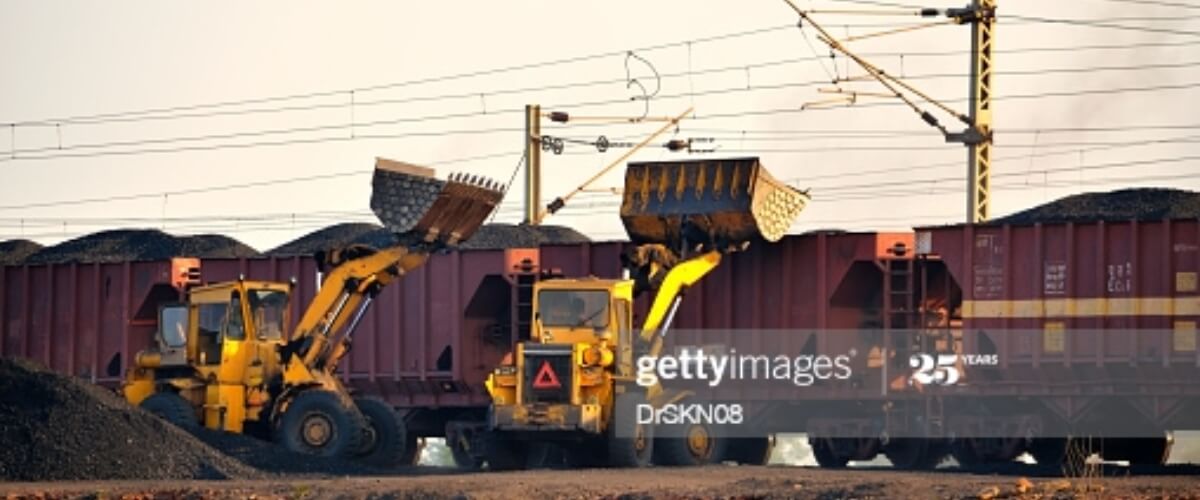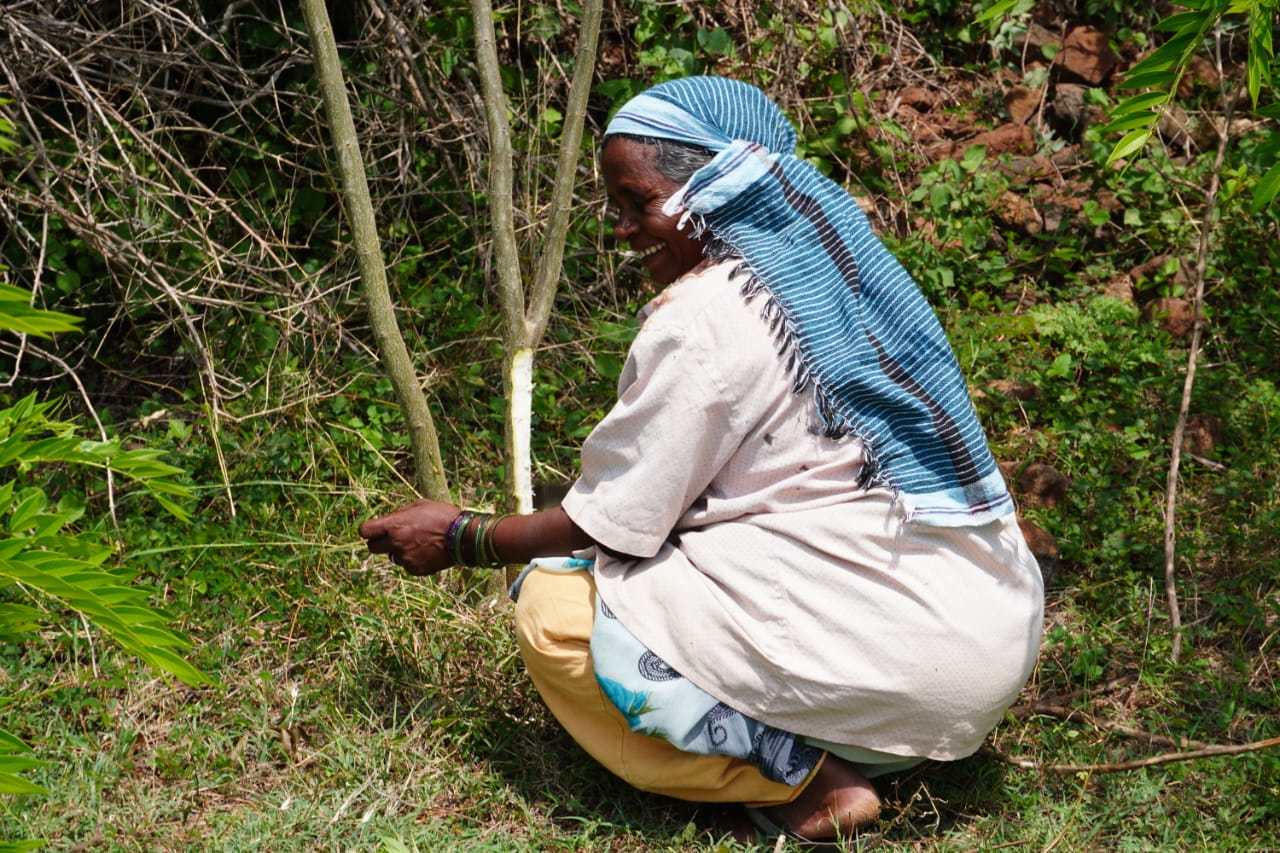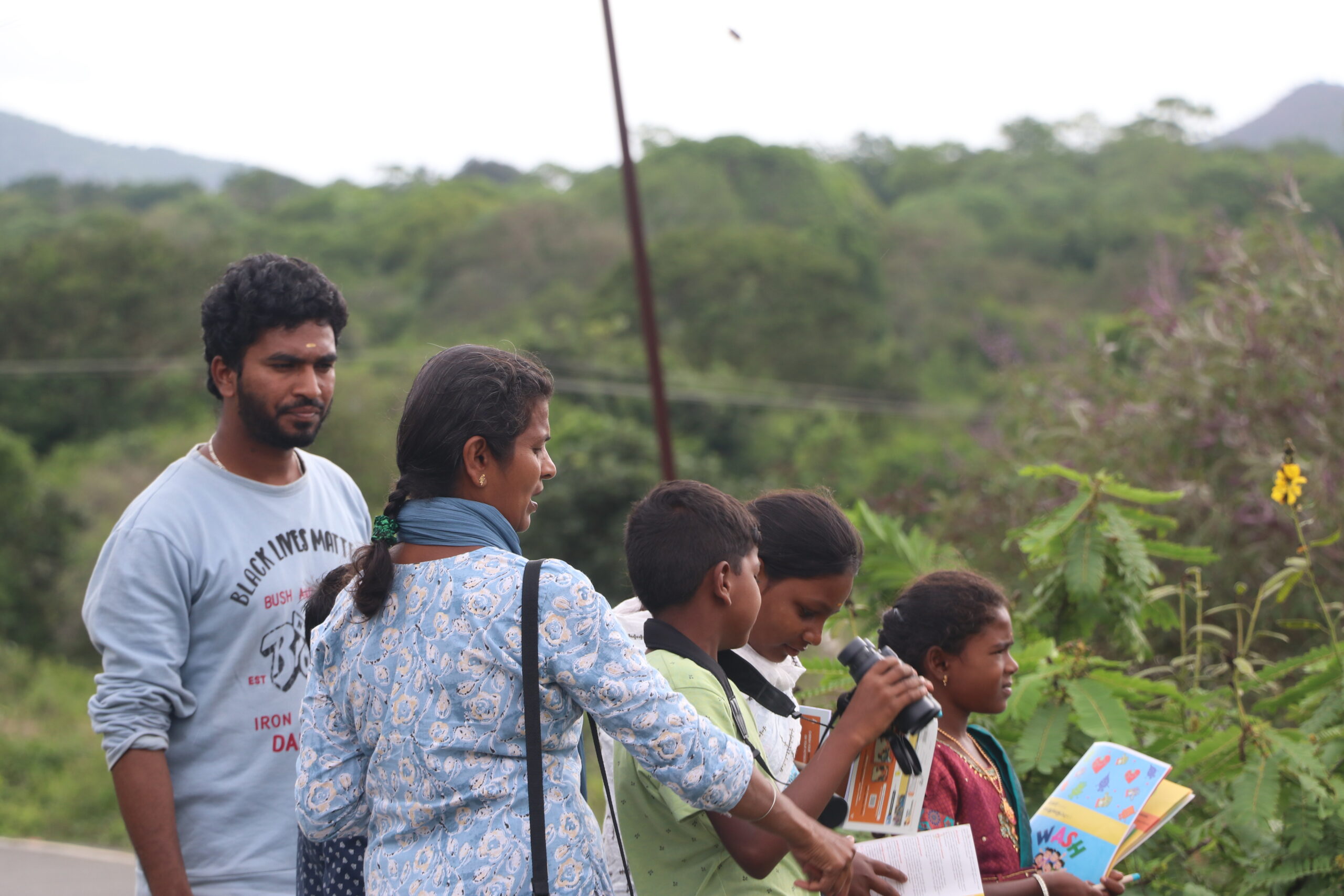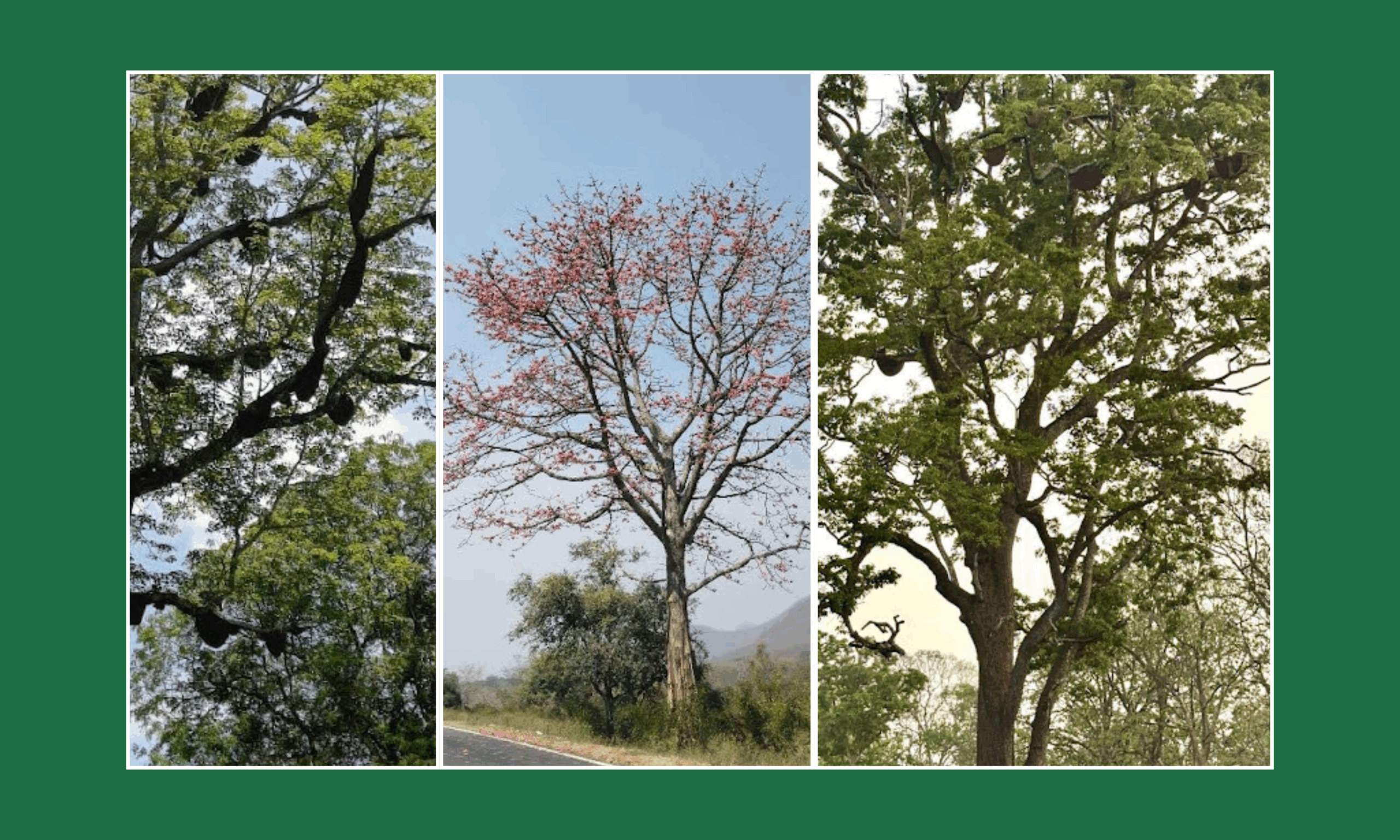On the 18th of June 2020 Prime Minister Narendra Modi launched the auction of 41 coal mining blocks aimed at achieving self-sufficiency in meeting energy needs and boosting energy development. The auction process is open to both domestic and global firms under the 100% FDI route. The PM said the move would help reduce India’s reliance on energy imports and develop the eastern and central parts of the country. This move marks a significant shift from the state owned coal industry in India towards the creation of privatised, commercial coal sector.
This move is also aimed at boosting the economy in the face of economic downturn as a result of the COVID-19 pandemic. However, a review of ground realities involved in the opening up of several of these coal blocks reveals that the process would result in high environmental costs as a consequence of increased pollution and loss of ecologically sensitive forest areas; and huge social costs for Adivasi and forest dwelling communities residing in the areas where the coal blocks are located due to displacement, loss of livelihoods and impacts of pollution and degradation of natural resources.
Several of the 41 coal blocks which are to be opened up are in ecologically valuable and biodiversity rich areas. Of the 41 coal blocks, 11 are located in Madhya Pradesh, 9 each in Chhattisgarh, Odisha and Jharkhand and 3 in Maharashtra. At least seven of the coal blocks were previously classified as “no go” areas for mining as a result of their environmentally valuable status. 5 Blocks are located in the Hasdeo-Arand forests of Chhattisgarh which are one of the largest contiguous dense forest stretches in India, spanning 170,000 ha. Madanpur North in Chhattisgarh, covers a total area of 21 km2 of which 19 km2 is forest area and it constitutes the drainage for several streams that join Hasdeo river, a major tributary of the Mahanadi. Morga II, also in HasdeoArand block covers 26.64 km2 of which 85% is forest land and it fall within the drainage of Hasdeo river.
Several of the coal blocks in Jharkhand are also in rich forest lands like the Chakla block which has 55% forest cover and serves as the drainage for Damodar and Bakri rivers. Similarly, in Madhya Pradesh the Gotitoria East coal block comprises 80% forest land and acts as the drainage for Sitarewa river. Many other blocks also have considerable forest cover and their opening up for mining would involve huge losses of forest cover and the loss of the invaluable ecosystem services provided by these areas. In fact, as a result of opposition and legal objections raised by several states one coal block, which overlapped with the Tadoba Tiger Reserve in Maharashtra has been removed, reducing the number of coal blocks being opened for auction to 40.
Furthermore, as per descriptions of the blocks up for auction on the website of state-run MSTC Limited showed that several of them do not have required forest clearance and are located amid protected forests. Despite these they are being opened up for auction and subsequent mining. In addition to the threats posed to biodiversity the opening up of these forest areas to coal mining will entail loss of vital carbon sinks and an increase in CO2 emissions thereby further contributing to global warming and climate change. This is contrary to India’s commitment to create an additional sink of 2.5-3 billion MT of carbon dioxide by 2030, through additional tree and forest cover, as per India’s nationally determined contributions under the UN Framework Convention on Climate Change (UNFCCC) target.The abysmal track record of compensatory afforestation for mining projects holds out little hope to compensate for the loss of ecologically valuable forest areas to the new coal blocks.
About 80% of the blocks are also home to Adivasi and forest dwelling communities who depend on the land, forests and natural resources for their survival. Coal and other minerals like iron ore are found in forested areas which are home to large populations of Adivasi people and other forest dwelling communities. Historically, the costs of mining and associated industrialisation and urbanisation has been disproportionately borne by the Adivasi communities who continue to remain outside the gamut of industrialisation with 91.7% of them still relying on agriculture, forest produce and livestock for their survival. Indigenous Adivasi populations have witnessed large scale displacement and alienation from their lands and forests, without any proper compensation or rehabilitation.
The destruction and degradation of their regions rich forests has further marginalised and deprived indigenous communities who have historically depended on these ecosystems for their survival. As per a report by Land Conflict Watch (LCW) after infrastructure, land conflicts over mining project are the second cause of distress with 852,488 citizens affected by them with on average land conflicts involving mining projects affecting 21,312 peoplewith a majority being Adivasi and forest dwelling communities.
Apart from the far-reaching negative impacts of displacement coal mining and associated developments that include coal fired power plants result in a variety of other problems that have serious consequences for the environment and local residents. Some of these impacts of coal mining are as follows:
- Large areas of habitat loss. Mining projects and associated developments often results large scale capture and degradation of the same resources that indigenous and forest dwelling people depend on. Significant wildlife populations, often including a variety of endangered species also often depend on theses habitats and are negatively impacted by the resulting degradation and destruction.
- Huge amounts of coal dust generation, disposal of both fly-ash and bottom ash and associated pollution.
- Contamination of water bodies because of chemical pollution and disposal of slurry in water bodies.
- Large amounts of water loss, which is often in water scarce areas and impacts all life around
- Loss of access of local communities to their traditional livelihood grounds like forests, streams and other water bodies.
- Negative impacts on local agri-horti-pisci cultures.
- Very significant human health impacts – even higher mortality rates, compounding other impacts.
Huge amounts of CO2 emission, accelerating global warming and climate change.
In several of the areas where the coal blocks to be auctioned are located, Adivasi and other forest dwelling communities have already been involved in prolonged people’s movements to safeguard their rights and resist proposed mining in their areas. Adivasi people often had no legal entitlement to the lands they cultivated or inhabited, and as a result have been regularly displaced – in several cases more than once in a single generation – to make way for mining and other projects that are deemed to be of “national” interest, with little or no compensation.
However, there are now several provisions like the like the Provisions of the Panchayats (Extension to the Scheduled Areas) Act, 1996 (PESA) and Forest Rights Act (2006) in place to serve as instruments for the empowerment of the Scheduled Tribes and allied communities and enable them to protect to safeguard their rights. Some of the provisions of PESA that empower communities in the context of mining and otherdevelopment projects are as follows
- Makes prior consultation with Gram Sabha or Panchayats at the appropriate level mandatory before acquisition of land for development projects;
- Makes recommendations of Gram Sabha or Panchayat at the appropriate level mandatory for grant of prospecting licence or mining lease for minor minerals;
- Requires that the State Governments change their existing laws wherever these are inconsistent with the central legislation.
In tandem with the PESA Act, the Forest Rights Act 2006, was specially enacted to correct an “historical injustice” perpetrated on Adivasi peoples since before independence. The FRA was to give the tribal people rights over their lands, to assure them the ownership of Minor Forest Produce, and to prevent further alienation. However, both these acts and other provisions to safeguard rights of the Adivasi people and other forest dwellers have been plagued by weak implementation and have often been subverted, overridden and diluted to serve the interests of the state that has included the opening up of coal blocks despite opposition from local communities.
In this context Madhu Ramnath, botanist, anthropologist and writer, in an article in 2013 has shared the challenges faced by villagers of Kantaroli village in PremnagarTehsil, Sarguja District, Chhattisgarh while resisting efforts to mine coal beneath their lands and forests. Premnagar Tehsil, constitutes a part of the HasdeoArand Forest area where 5 of the coal blocks to be currently opened up for auction are located. The Tehsil being a predominantly tribal area was administered by the provisions of the PESA, and had quite clearly rejected the proposal of a coal based power plant in several of its Gram Sabha meetings.
However, the state machinery employed a variety of strategies to dilute the powers of the Gram Sabha in order to the pave the way for coal mining and establishment of the proposed power plant. Ramnath points out that suddenly in March 2010 – Premnagar’s Gram Panchayat was notified as a Nagar Panchayat or City Council. The people of Premnagar were no longer villagers! This entailed that the “wide, special and significant powers of the Gram Sabha to which they belong, which are spelled out in the PESA Act”, no longer applied to them.
There was little doubt that the move was directly related to the Gram Sabha’s opposition to the power plant. Similarly, a total of 67 Gram Panchayats across Chhattisgarh, at that period of time had been converted to Nagar Panchayats thereby taking away the PESA powers granted to the Gram Sabhas which were predominantly in PESA areas. Along similar lines efforts to protect ecologically sensitive forests of the Hasdeo-Arand region have been bypassed by various governments to make way for coal mining. On 23rd June 2011, Jairam Ramesh (UPA), then Minister for Environment and Forests, agreed sanctioned Stage-I approval to the proposal of the Chhattisgarh State to open up 3 coal blocks (Tara, Parsa East and KanteBasen) in Surguja District, which were in the northern part of the Hasdeo-Arand region.
Jairam Ramesh is currently one of the most vociferous opponents of the opening up of 40 coal blocks especially those in the Hasdeo-Arand region. However, at the time going against the recommendations of the Forest Advisory Committee (FAC) that had been appointed to review the project he decided to allow mining under more or less the same circumstances in the same areas where on the recommendation of the FAC he had rejected the proposal on three previous occasions. He provided 6 reasons for approving the proposal which were largely unconvincing and failed to address the serious environmental, ecological and social costs of the proposed mining.
In the current scenario the consultations and environmental assessment are expected to take place after the auction of the coal blocks, which denies people the possibility to veto the auctions before they happen. This has raised concerns that with the opening up of these 40 coal blocks the provisions to safeguard the interests of local communities and the environment have been further weakened.
The history of high environmental and social costs of coal mining in Central and Eastern India fails to inspire confidence that the current auctioning of 40 coal block will effectively address these concerns and mitigate the negative impacts, especially since several of these coal blocks would involve opening up of ecologically sensitive areas to mining and would enhance conflict with Adivasi and forest dwelling community for whom several of these blocks is home. However, notwithstanding these concerns Prime Minister Narendra Modi while announcing the opening up of the coal blocks emphasised that “The steps taken towards commercial mining will be very helpful to eastern and central India by providing the local population with employment near their home”. He also said that the reforms and investment in the coal sector would play a big role in easing the lives of tribals and extra revenue generated through coal production would be used for public welfare schemes in the region.
A Grassroot Voice
Sidheshwar Sardar, of Paryavaran Chetna Kendra (PCK) Potka, Jharkhand, who has worked with issues pertaining to the environment and Adivasi people for over thirty years, shared his thoughts on the auctioning of the coal blocks and some of the benefits that the government has said would accrue to local communities especially to Adivasi people. He pointed out that Adivasi people have been the biggest losers as a result of mining especially in his home state of Jharkhand.
Despite the formation of the state of Jharkhand in 2000 the region has continued to witness the displacement of lakhs of people for mining and industrial projects with over 70% of those displaced being Adivasi people.
The displacement of Adivasi people from their land and forests snatched away their right to a life of dignity and they got little or no compensation in return. Sidheshwar pointed out that mining for coal in Jharkhand still involves open cast mines which result in high loss of land, forests and biodiversity; are a major source of pollution; water scarcity and negative health impacts. The current dire water crisis in Dhanband, a hotbed for coal mining, is indicative of the long term impacts of open cast coal mining.
Despite being mandated to close old open pit mines most companies just abandon the pits and there are numerous mines across the state where no levelling has been done, thereby increasing the threat to the environment, health and safety of local populations. Sidheswar also feels that the privatisation of coal mines would make Adivasi people in areas where coal mining is to be carried out even more vulnerable to exploitation and alienation from their land and forests without adequate compensation. He stated that with state run mining operations Adivasi people at least had some hope of using legal provisions to get a portion of what was due to them.
However, private companies openly flout government legislation and fail to honour commitments to local communities. There are numerous examples of private companies involved in mining bribing members of Gram Sabhas to turn community members against each other in order to weaken community opposition to mining activities. He was also outraged that public consultations would mostly only be held after the auction of the new coal blocks. He said that this would mean that the only option left to Gram Sabhas would be to beg for the provision of facilities, rehabilitation and remuneration after the allocation of the coal block; and they would have no scope to raise objections to protect and safeguard their lands and forests from the proposed mining.
He felt that the promise of provision of employment to local populations near their home would remain a pipe dream for Adivasi people. With increased mechanisation of coal mining there was little demand for unskilled labour. Since the majority of Adivasi people in proposed coal mining blocks are unskilled, they would fail to find permanent employment in the mines and associated industries.
The private companies would ask them to upgrade their skills to secure employment. But with no facilities or opportunities to acquire new skills and training most Adivasi people would remain out of the ambit of the employment opportunities provided by coal companies. In fact, in addition to loss of livelihoods, land and access to forests people in coal block areas would face challenges in accessing basic facilities like access to clean and safe water, and health facilities. Despite it being mandated that companies make available water and health facilities within a 10 km radius of their operations these basic facilities are yet to be made available in most coal mining areas across Jharkhand.
With regards to funds for tribal welfare Sidheshwar points out that majority of funds for welfare of Scheduled Tribes was underutilized and in fact decisions were taken to use the funds for infrastructure development like the building of railway over-bridges. The Adivasi people of the state have been engaged in a prolonged struggle to protect their land, forests, and rights from mining. However, as a result of the commercial allure of privatisation of coal mining most politicians once the come into power fail to support people’s movements on the ground and usually only register their protests through statements to the media and letters of protest to the central government.
Several networks of community leaders, people’s networks, community-based organisations, civil society organisations, political parties and state governments have raised concerns about the auctioning of 40 coal blocks with the Prime Minister and the central government. The new coal blocks are expected to displace tens of thousands of families, a majority of whom are Adivasi people. In addition, the Adivasi and other forest dwelling communities would suffer from a loss of traditional natural resource base resources, air and water pollution, water scarcity and negative health impacts.
At a time when rural communities are already under tremendous pressure in the wake of the COVID-19 pandemic, the new coal blocks threaten to add to the challenges of communities that are already among the poorest and most marginalised in the country. Bearing in mind the serious concerns raised about the high environmental and social costs of opening up of the 40 coal blocks there is an urgent need for political will to review the move bearing in mind all legitimate concerns and explore sustainable and more viable strategies to meet the country’s energy needs and revive the economy.
By Rohan Mukheerkjee
TOI June 18, 2020: PM Modi launches auction process of coal blocks of commercial mining: Key points
Guardian 8 August, 2020: India plans to fell ancient forest to create 40 new coalfields
HT 18 June, 2020: Coal mine auction opens up vast stretches of forests in central India for mining, show documents
The Wire Science, 12 August, 2020: Don’t Understand CPWD’s U-Turn on Wood Use? Try Modi Govt’s Climate Doublespeak.
https://science.thewire.in/environment/cpwd-memorandum-wood-use-construction-unfccc-ndc-adivasi/
Dungdung G., 2009. “Adivasis Struggle against Displacement”. Countercurrents.org http://www.fra.org.in/Adivasis%20atruggle%20against%20displacement%20in%20Jharkhand.pdf
Focus Magazine, 18 July, 2020: India’s Mining Sector: Present Is Tense & Future Could Be Imperfect Mainly For Adivasis
Dutta Soumya, March 2013. “Large Energy Projects: Threat to ecosystems, biodiversity, livelihoods and democracy” New Delhi, Inida. South Asian Dialogues in Ecological Democracy (SADED)
Climate Home News, 19 June, 2020: India eyes private investment to open 41 new coal mines
https://www.climatechangenews.com/2020/06/19/india-eyes-private-investment-open-41-new-coal-mines/
Down to Earth, 18 June, 2020: Jharkhand-based coalition calls for mass protests against decision to open coal sector
Down to Earth, Mining Diaries, 14 March 2013: Coal Country Politics in Surguja, Chhattisgarh: people forsaken by the fine print
https://www.downtoearth.org.in/news/mining/mining-diaries-40556


















